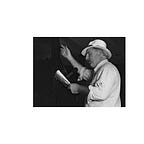The Original Sin of Morality
I believe that the original sin for all people at all times is morality: the so-called “knowledge” of good and evil which is used to declare some people good and to declare other people evil. Such a so-called “wisdom” gives those who possess it god-like power in their mind and, in the earthly world, through the agency of societies, which each converge on their respective brand of morality. Society is thus a sin in itself, as some brand of morality is always the basis for inclusion or exclusion in a society. The codification and institution of Morality and its enforcement through those laws and institutions, authorizing the force of Society, as a means to the dehumanization of large categories of human beings, is the essential component of the kingdom of Man, the rule of the people, which is to say, democracy.
All of this I inferred from the Genesis story of the Garden of Eden, which I take as an eternal story, one which reads like a modern sitcom, including the “blame it on the wife” trope. What the story tells us is much deeper than what its humorous depiction of human frailty might lull its readers into accepting as its meaning. The tree of the “knowledge” of good and evil in the midst of the Garden is morality; the temptation of the serpent is democracy; and the character of Eve after eating the fruit of the tree is society.
The Gospel takes that eternal story one step further and flips it on its head, with an assist from the prophets. In outline, a prophet named “God Saves” teaches that people should seek the kingdom of heaven rather than the kingdom of Man and, for this message, is condemned by society and democracy to hang on a barren morality tree, the stake used as the implement of a death sentence by the quintessential democratic empire, the rule of the Populares Party of Rome under the Caesars, inaccurately known as “The Roman Empire”. The moral condemnation of God by Society, and Democracy through the hanging of a prophet in the role of God, the persona of God, refutes the original sin of Morality, as well as its derived sins of Society and Democracy.
What, then, of the other tree in the midst of the Garden of Eden, the tree of life? Morality is inconsistent with its fruit. Declaring some people to be evil is declaring them not to be people and, furthermore, enemies of society and democracy as pariahs and criminals. In the black-and-white view of Morality, pariahs and criminals face a sentence of death. Pariahs are denied concourse and community and thus face a death of human life, of everything which brings humanity to their lives. Criminals are denied the life of their own physical bodies and are always one step away from capital punishment, whether intentional or not. To have God sending His angels to guard the tree of life is a metaphor for a logical necessity.
The tree of life is never chopped down, though, indicating that Morality can always be rejected, along with Society and Democracy. When Morality is rejected, when Society and Democracy are forsworn, then all people are treated as humans and their lives preserved, insofar as that is physically possible. Yet there is more to life than its individual physical manifestation.
This is where the Body of Christ plays a crucial role. The communities of people choosing the kingdom of Heaven, the kingship of God, the kinship of Love, are the resurrected Body of the Anointed One, of the Person of God which Society and Democracy eternally condemned. This is the message of the Gospel to the people everywhere; it transcends culture and tradition, even of faith where we call it “religion”. It is only for that universal message that the children of Abraham were Chosen. They were not chosen to carry the albatross of their tradition around their necks and certainly not to be advocates of democracy, society, and morality. From the stones of any continent, God can raise up children of Abraham who truly fulfill the Promise by rejecting Morality and accepting Life.
Yet, what is Life?
Many misunderstand Life as being entirely physical, as being bound in time and space. It is not. This is something to which I can testify, but not convince. Something I can tell, but not cause you to hear. Something I can write, but not make you read. Only the Great Spirit, the Holy Spirit, can present it to you in a personally meaningful way. I can only say that I know that my life transcends my body and that I have known this from before I fully walked, from being caught up in the warm white gleam of Love whose embrace I felt, after praying as the young Solomon. I also saw what I sensed, from my elevated position, to be many children in India suffering misery. I also felt that I had a choice to continue upwards but decided, instead, to return to solve the problem of poverty. That is the genesis of my mission and my sense of Life; it cannot be your own. It is why I am convinced that my physical life is only a part of the Life in which I dwell.
